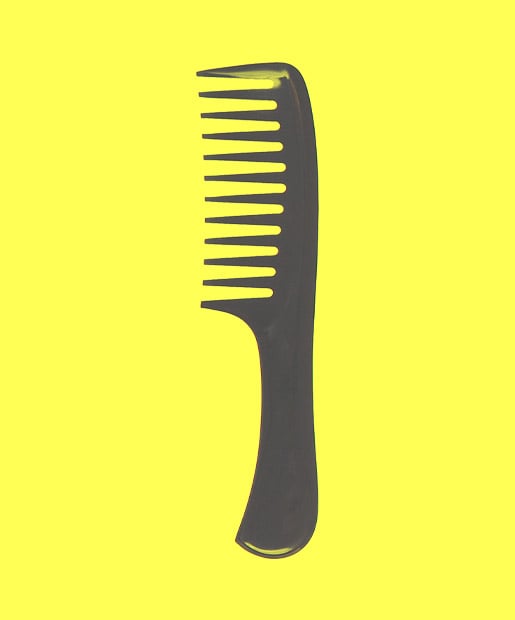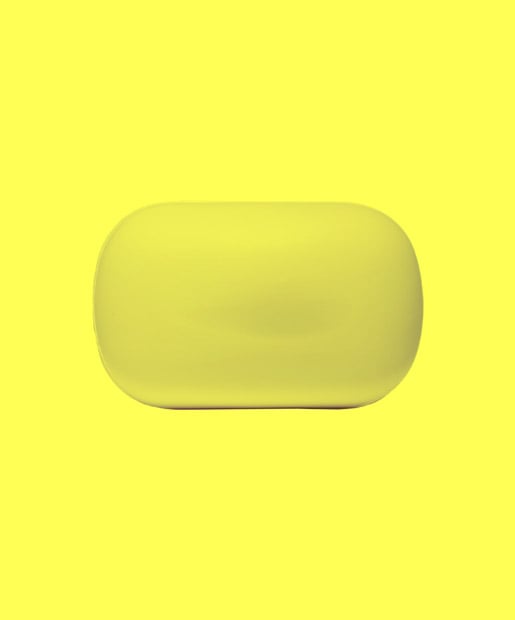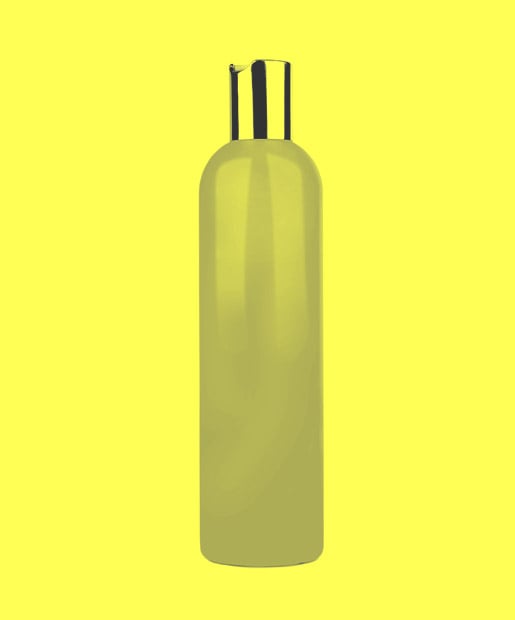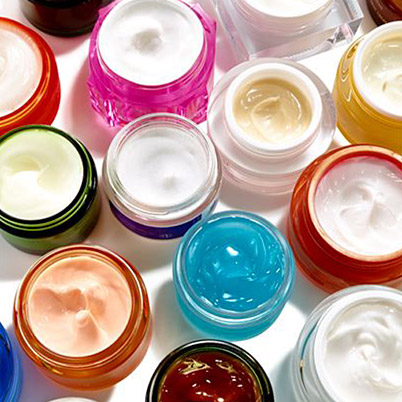How it's hurting: We apologize to the germaphobes out there, but the experts we spoke to were unanimous: You're doing more harm than good by showering every day. "Overwashing depletes our skin of valuable natural oils and lowers its acidity (or pH) levels," says Jolie Martin, director of SKINNEY Medspa in NYC. "Lower acidity levels make our skin too alkaline and weaken its ability to fight bacterial infections, skin damage and disease."
The fix: Unless you're working up a hearty sweat every single day, consider this your permission slip to skip your shower and sleep in. Limit bath time to every other day, and keep it as close to 10 minutes as possible. Why? 10 minutes is enough time for the warm water to let your pores open up and actually moisturize the skin instead of drying it out. You'll clearly have to go over on the days you shave or deep condition but be forewarned: the longer and hotter your shower gets, the more damage control you'll have to do with moisturizing products afterward.
The fix: Unless you're working up a hearty sweat every single day, consider this your permission slip to skip your shower and sleep in. Limit bath time to every other day, and keep it as close to 10 minutes as possible. Why? 10 minutes is enough time for the warm water to let your pores open up and actually moisturize the skin instead of drying it out. You'll clearly have to go over on the days you shave or deep condition but be forewarned: the longer and hotter your shower gets, the more damage control you'll have to do with moisturizing products afterward.
How it's hurting: If you're taking down your pony, hopping in the shower and saving your conditioning 'til last, your hair could be in for a world of hurt in the form of matted tangles and fragile strands.
The fix: Take a cue from Marcia Brady and brush all the tangles and snags out of your hair before hopping in the shower. Because water weakens your strands, wet hair is especially prone to matting and breakage. Mitgang recommends a soft multi-bristle brush pre-shower for gentle detangling and minimal yanking. Once you step into the shower, shampoo and condition your hair ASAP. "The best way to deep condition is to start at the beginning of your shower," says Mingtang. "Shampoo first, rinse, squeeze (don't wring) excess water, slather your product on and then use a shower cap so it can soak in. Do this during a long shower so it's on a while" (i.e., on a day you're shaving your legs and you know you'll be going over 10 minutes), says Mingtang.
While it may be tempting to rake through tangles when your hair is covered in conditioner, Mitgang says if your hair isn't on the coarser side, step away from the wide-tooth comb. "When hair is wet, it's a little more fragile ... so damaged or fine hair is better off being detangled out of the shower," she warns.
The fix: Take a cue from Marcia Brady and brush all the tangles and snags out of your hair before hopping in the shower. Because water weakens your strands, wet hair is especially prone to matting and breakage. Mitgang recommends a soft multi-bristle brush pre-shower for gentle detangling and minimal yanking. Once you step into the shower, shampoo and condition your hair ASAP. "The best way to deep condition is to start at the beginning of your shower," says Mingtang. "Shampoo first, rinse, squeeze (don't wring) excess water, slather your product on and then use a shower cap so it can soak in. Do this during a long shower so it's on a while" (i.e., on a day you're shaving your legs and you know you'll be going over 10 minutes), says Mingtang.
While it may be tempting to rake through tangles when your hair is covered in conditioner, Mitgang says if your hair isn't on the coarser side, step away from the wide-tooth comb. "When hair is wet, it's a little more fragile ... so damaged or fine hair is better off being detangled out of the shower," she warns.
How it's hurting: According to the American Academy of Dermatology, traditional soaps, antibacterial soaps and many perfumed soaps contain harsh ingredients that strip natural oils from the skin, leaving you with tight, scaly skin.
The fix: Martin recommends turning to non-soap hydrating cleansers over a true soap.
If you're sticking to the 10 minute time it's important to hit the key areas that need the most attention -- the pits, under breasts and between the legs -- but when it comes to intimate areas, steer clear of lather and fragranced body washes that can disrupt your body's natural balance of bacteria.
The fix: Martin recommends turning to non-soap hydrating cleansers over a true soap.
If you're sticking to the 10 minute time it's important to hit the key areas that need the most attention -- the pits, under breasts and between the legs -- but when it comes to intimate areas, steer clear of lather and fragranced body washes that can disrupt your body's natural balance of bacteria.
How it's hurting: Before you begin to lather up, you may want to think twice about your method of application -- loofahs can be too harsh on delicate skin, hands can't thoroughly get the job done and damp washcloths can be breeding grounds for mold, bacteria, or a mild infection of the follicle called folliculitis (especially when the follicle is exposed post-shaving).
The fix: Martin says your best bet is to invest in an exfoliating body buffer that gently exfoliates and dries quickly. Factor in a salt or sugar scrub twice a week to give your shower tools some downtime thoroughly dry and to avoid a constant state of dampness.
The fix: Martin says your best bet is to invest in an exfoliating body buffer that gently exfoliates and dries quickly. Factor in a salt or sugar scrub twice a week to give your shower tools some downtime thoroughly dry and to avoid a constant state of dampness.
How it's hurting: Just as soap can strip your skin of protective oils, shampoo can do the same thing to your delicate hair and scalp. If you find yourself drowning your hair in conditioner and it still feels like straw, it's time to scale back on how often you shampoo.
The fix: Unfortunately, scalps vary from person to person, so there isn't truly a one size fits all rule for shampooing, but Mitgang says the fewer shampoos the better ... as long as things aren't getting truly unsanitary. "For 'greaseballs' who tend to get greasy after a day or so, use a dry shampoo or dry texture spray to absorb oil and lift the root away from the scalp so you can shampoo every other day instead of daily. For those who wait a week, that's okay, as long as your scalp doesn't itch or smell. Twice a week is best."
The fix: Unfortunately, scalps vary from person to person, so there isn't truly a one size fits all rule for shampooing, but Mitgang says the fewer shampoos the better ... as long as things aren't getting truly unsanitary. "For 'greaseballs' who tend to get greasy after a day or so, use a dry shampoo or dry texture spray to absorb oil and lift the root away from the scalp so you can shampoo every other day instead of daily. For those who wait a week, that's okay, as long as your scalp doesn't itch or smell. Twice a week is best."









